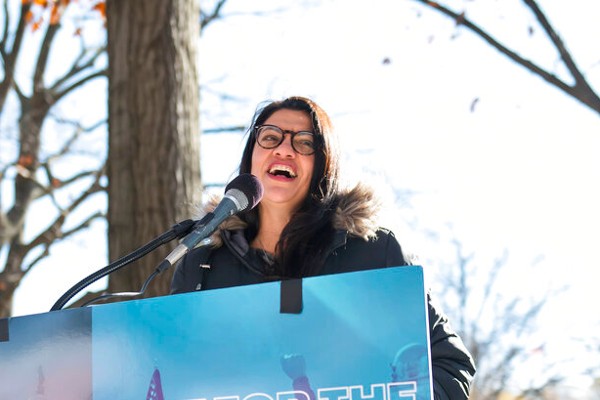Jewish students unimpressed with universities’ response to rising antisemitism

Jewish students have not been satisfied with the strategies that universities have used to combat antisemitism.
In the aftermath of the deadly Hamas terror attacks on Israel last month and the military response that followed, colleges have taken a variety of actions to combat antisemitism. These range from the simple release of statements up to the designation of police protection in some cases.
Cornell University has made headlines following an alleged threat made online by a student to bring a firearm to school in order to “shoot-up” a dining room with kosher food that caters to Jewish Students. According to reports, the person said that he would also slit Jewish students’ throats.
The university suspended its student body and increased police presence at areas where Jewish students frequented, such as the Hillel Center and dining hall.
|
Jewish organizations also praised Columbia University for suspending Students for Justice in Palestine, which was accused of causing an increase in threats by its statements that backed Hamas.
Since the October 7th attack, two congressional hearings have been held on the subject of anti-Semitism in college campuses. Administrations are being criticized for their lackluster condemnation of the event and slow response to anti-semitic incidents.
Students do not believe that subsequent actions are sufficient to protect them.
Talia Khan, a 25 year old graduate student at the Massachusetts Institute of Technology(MIT), told The Hill that she received poor responses when she brought concerns about antisemitism into her administration.
Khan, president of MIT’s Israel Alliance, said that they are aware of similar situations but have not done anything to improve our safety. “They say they’re ‘working on’ it, that ‘these thing take time’ etc. When asked, “What will you do today to make us feel safer?” Tomorrow? They don’t give anything back. “Just words.”
She stated that, in one instance, Sophia Hasenfus (head of diversity equity and inclusion at the Department of Urban Studies and Planning) liked a tweet on X – formerly known as Twitter – that read, “this what oppressed fighting oppressors look like” after the attack on October 7.
Khan said that she also had to leave a study group because some students were claiming Hamas’s attacks was justified.
She said, “You have administrators in charge making students feel unsafe and scared on campus. The MIT administration knows about every single case.”
MIT stated in a press release that it was “always difficult to hear someone feel unsupported”, and that officials at the school “appreciate there is a diversity of sincerely-held views and feelings among our student body and community.”
A spokesperson referred to an announcement made by MIT President Sally Kornbluth on last week’s steps that the school would take to combat antisemitism.
Kornblurth, in the video, announced a university committee called “Standing Together Against Hate,” stating that “Nobody in our community should feel afraid to walk around campus wearing a Star of David or a yarmulke or a Hijab – or any other symbol of their faith.”
Kornbluth stated that the school has increased security and reminded its students of their violation of campus policies for “disturbing classrooms with slogans or kind.”
The spokesperson for MIT said that there was “special outreach” made to students and groups “affected” by the conflict and that support is available from the Division of Student Life.
They added that “a number of offices were also actively involved, including the Office of Religious and Spiritual Life (which includes MIT Hillel); the campus police; and members of the faculty who are committed to Israel and this region, among others.”
From Oct. 7-23, the Anti-Defamation League (ADL) reported 312 incidents of antisemitism in the United States. In 2022, the same period saw only 64 antisemitic crimes. Even before the October 7th attack, hate crimes against Jews were on the rise. According to FBI statistics, they increased by 25 percent between the years 2021 and 2020.
Ephraim Slunov, sophomore at University of California Santa Barbara, says he’s heard “Heil Hitler!” yelled in his face on campus. “Harassment of Jewish students is completely normal,” he said, adding that the school offers little help.
Shalunov stated that his school was the first public institution to condemn Hamas via the student government. However, “violent protests”, which were intended to disrupt proceedings, did occur, and “the administration responded extremely slowly.”
He stated that “there was no interest in stopping the disruption.” Police were called only after the assaults, even though they were shouting genocidal slogans over megaphones to hundreds of Jewish students who were in an orderly gathering. This is clearly a violation of campus policies.
According to a spokesperson for UC-Santa Barbara, The Hill, the campus is working hard to support students in these difficult times. This includes a variety of services, such as academic and personal advising and support for well-being. Students are also provided with information and tools such as how to report bias incidents. “The University responds as soon as these incidents are reported.”
Shalunov stated that the university sent senior officials to a vigil for Israelis held after the attack, but there was “steady degradation” on campus over the following weeks.
He said that despite being in “frequent communication” with the Vice Chancellor for Student Affairs and the Dean of Student Life, the school had “nothing to offer” him.
The school spokesperson stated that “Our campus administrators, student affairs professionals and other staff members care deeply about students. They have met with campus groups and individuals to share information and resources and sent out campus-wide messages and meetings.” The campus demonstration response team attends every event in order to monitor student concerns and address them in real time, and coordinate with campus safety partners.
Recently, the Department of Education launched a civil right investigation against seven schools in response to allegations of antisemitism or Islamophobia. Columbia, Cornell University, Wellesley College Lafayette College and Cooper Union for the Advancement of Science and Art, New York are all included in the probe.
Catherine E. Lhamon is the assistant secretary of civil right for the Department of Education. She said: “We, at the Department of Education and the nation, are concerned about the fear that students and school communities feel as hate spreads throughout schools.”
Khan sai









No Comments